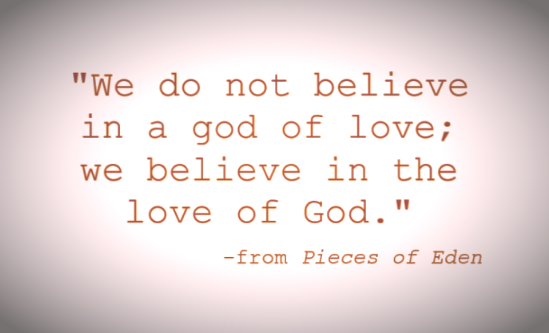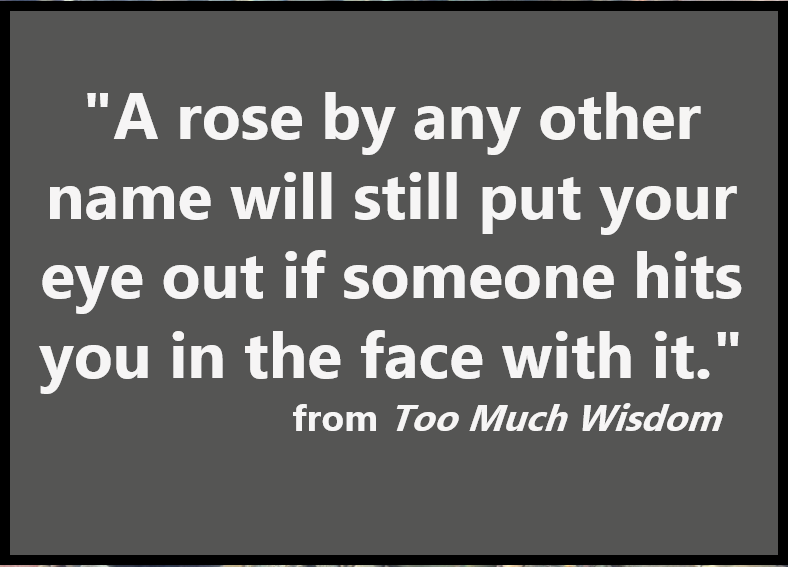 One of the things which set Star Trek apart from the very beginning was Spock; and the first and most obvious thing about Spock was that he was an alien. He was hardly the first alien to grace the world of science fiction, but what was unusual about him was simply his presence aboard a mostly-human vessel, working hand-in-hand with other species as they cooperated to complete a peaceful mission of discovery. Compare that to the way aliens were nearly always viewed as outsiders back then: outsiders who invaded (War of the Worlds) outsiders who were benevolent (the Day the Earth Stood Still) or outsiders who were the subject of intense personal contact and curiosity (Out of the Silent Planet). Spock was none of these things. It’s true that his Vulcan identity was often a source of contention, or conflict, or curiosity, but it was all of those things precisely because he was part of the crew, one of the group, initiated; because he was included – even if he was unique. That was a genius adaptation. But of course, once he was in, he had to stand out. And the way they did that was to allow his character to evolve (very quickly, and with a good head start) into the logical being whom we all know and love. His Vulcan philosophy of eschewing emotion and embracing pure logic made him seem relatable but distant. We understand what logic is, therefore we know what Spock was up to; but it was his lack of emotion that seemed inhuman. Or did it? Here we have to delve into the man behind Spock. Leonard Nimoy wrote several books about his life and his character, and he took pains to describe how he protected the character from being written off the rails. Especially at first, during the early years, writers would have Spock getting angry or happy, and he’d have to fight for the emotionless logic of the character. But in spite of the supposed “emotionlessness” of Spock, Nimoy was able to imbue the character with just as much expressiveness and character – and humanity – as the most grasping over-actor. But in Nimoy’s case, he did so with subtlety. In the process, he gave us a character who was rich and full, convincing as a character who had emotions but who was never controlled by his emotions. In short, when it came to emotions, Spock was in charge; this was demonstrated because when it came to facial expressions, Leonard Nimoy was in charge. I’m going to give you concrete, visual examples, and just to make sure I keep it fair, I’ll tell you what I ruled out. Firstly, I ruled out the first season, just to make certain that I'd be limited to examples of Spock’s character after he was more firmly fixed in Nimoy’s mind and in the expectations of the audience. Secondly, I’ve avoided any of the episodes where the writers used a “hook” or a gimmick to make Spock temporarily emotional (like time-travel or pon far). I’m sticking to just those episodes where Spock is being himself naturally. And what you’ll see as you look at these examples is dozens of tiny, fleeting micro-expressions on Nimoy’s face, communicating a wide range of very human responses and feelings. In episode 36 ("Catspaw") Spock, Kirk, and McCoy must face gothic terrors in a seemingly haunted castle. As he tries to think through their predicament, Spock gives us the quintessential Spock-thinking-deeply expression: eyebrows slightly furrowed and leaning downward to create a look which would be sinister on anyone else. On him, this expression evokes curiosity - even slight befuddlement. Now look at this image from episode 75 ("The Way to Eden"). Nimoy has almost transformed Spock's angry eyebrows during the course of a quiet conversation. Now nearly flat, they allow the shape of his eyelids to show, creating a much softer look as he and Kirk contemplate their dilemma. In the same conversation, Spock begins to pace while Kirk speaks. Notice, though, that instead of allowing his face to remain placid, he purses his lips slightly, moving fluidly from the compassionate thought at the start of the conversation to deeper concentration here, evident in the set of his mouth. Then as he responds to Kirk: combining the full force of his impeccable facial control, he not only gives us the famous single-raised-eyebrow, he also allowed his mouth to curl downward in a sort of grimace, trying to match the words he's saying with an expression which tells us that his conclusions are difficult, yet necessary. One final example, this time from episode 66 ("Wink of an Eye"). In this shot, Spock isn't trying to wrestle with a thorny ethical dilemma like he was in "The Way to Eden", and he wasn't trying to work through a sticky logical problem the way he was in "Catspaw". Here, he's merely responding to the taste and texture of a chemical drink mixed by McCoy. I defy the most experienced, highfalutin, self-important wine taster on this planet to come up with a more complete facial expression. In fact, if you cover the left side of this image and look only at the right side, Spock looks like he's listening to a lecture about tax law. If you cover the right side so that you can only see the left side, he looks like he just caught you in the act of trying to be smarter than him. The requirements of this role were more than met by Nimoy, and his portrayal was nothing less than a mastery of subtle human facial expressions. As you can tell from these examples, Spock was portrayed from the beginning as thoughtful, curious, inquisitive, serious, (sometimes even playful), and contemplative; and what’s more important, all of those things were expressed by him, through subtle but very clear facial expressions. That’s one reason we fell in love with his character. He was us, only more so. Smarter, more logical, unique. And that made him interesting. Often even... fascinating. This can also be demonstrated by those who followed in his footsteps. Some actors in Star Trek spin-offs seem to think that “being Vulcan” means never changing one’s facial expressions. They work hard to maintain a completely blank slate (or they are incapable of making subtle micro-expressions; or they are incapable of making any expressions) and they pose their way through every scene with their face as stiff as a pine board. They have to speak out loud about what they’re thinking and you can never tell by looking at them. How boring. And worse, what a betrayal of Nimoy’s legacy. The one actor who followed Nimoy’s footsteps with gusto was Brent Spiner. In fact, Spiner went even further than Nimoy, giving Data the ability to smile, frown, squint, furrow his brow; on occasion, he even went so far as to allow his eyes to twinkle. In short, Spiner upped the ante, giving us even more facial expressiveness than Spock ever had (more and more as his character developed) while all along he convinced us that he could mimic the nuances of human non-verbal communication without really feeling emotion. [Brent Spiner as Data - three shots from Season 5 E. 26, "Time's Arrow"] The android Data was a continuation of Spock, and because of Spock, Data was able to be both believable and brilliant. What’s more, Spiner’s ongoing adaptation of Nimoy’s brilliance is what made Data, by far, one of the most beloved non-human characters in Star Trek. It’s just a pity that so many other actors hired to portray Vulcans never got on that band-wagon.
The inhabitants of Vulcan started out as possibly the most interesting part of the Star Trek universe. They started out being like us only more so. Because so many would-be-Vulcans believed their job was to never show any expression at all, they ended up being like us... only less so.
1 Comment
Gay Stumbo
4/9/2020 04:21:17 pm
Spock was and is my favorite Vulcan. Thanks for putting into words what I have always felt.
Reply
Leave a Reply. |
Click on the link to go right to Josh's Amazon Author page.www.amazon.com/Josh-McFarland/e/B0868TJ4CP/ref=dp_byline_cont_book_1 Archives
February 2021
Categories |
Site powered by Weebly. Managed by Hostgator








 RSS Feed
RSS Feed